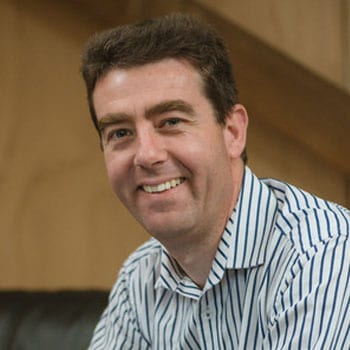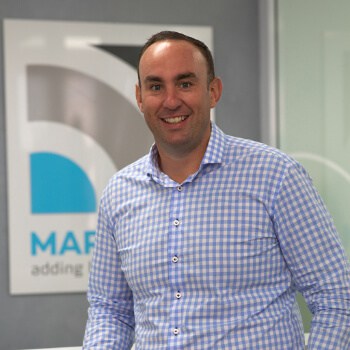We tap Mike Clark for his experience in working with and motivating, great teams. The New Zealand Olympic rowing team gets a mention, alongside Mike’s analogy of not standing up in the waka! Mike shares his thoughts on the stories we tell ourselves and how they form us; identifying the gap between how we want to be known and how we are really known; and the importance of positive thinking.
How do we motivate our team to greatness?

Invisible Strength
How do we motivate our team to greatness?
/
RSS Feed
How do we motivate our team to greatness?
ThinkRight thinkright.co.nz
More about Mike thinkright.co.nz/mike-clark
The Markham team markhamglobal.com/people
Banner image by Jonathan Borba on Unsplash
View the Transcript
Hayden: Hello all, welcome to the latest episode of Markham’s podcast. I’m Hayden Prestidge, based in Napier head office, and I look after the Design and Delivery teams; involved with the sales and marketing side through there; and it’s great to have you onboard today all listening, ready to roll for another great session.
Now we’ve been wondering and talking about internally, How Do we Motivate Our Team to Greatness? And we’ve brought on Mike Clark. He’s a motivational expert speaker for ThinkRight in Palmerston North, a very dynamic strategic facilitator, trainer, motivator. So you’ve probably seen him before – but welcome aboard, Mike! Good to have you on board. Tell us a bit about yourself.
Mike: Fabulous thanks so much, Hayden. Really great to be here! I’ve been working with teams pretty much since I left school. I started out as a production manager in a steel factory in Zimbabwe, immigrated across to New Zealand and started with a company selling window frames – not window frames, kitchens!
And I discovered I love working with teams I’ve always loved working with people and have worked in so many things. I can see a dramatic difference between what motivates people, and so I wanted to harness that and help people to think right. Because when people think right, they act right and then they get the right results, both as individuals and as teams. So over a decade ago now, we set up a business called ThinkRight to help people do that more effectively.
Hayden: Fantastic, quite a diverse background there. Coming through those countries as well. So good to pick your brains through this one.
Obviously, there will be something there that probably stands out that you’ve seen consistent right through these, all through your roles and all through the different places you’ve worked. And obviously, these episodes are a little bit about Invisible Strength, so it’s probably something underlying that stands out that all the teams should be striving for. But can you say something about what that might be?
Mike: Fabulous! One of the things that does stand out – and it comes up every time I do a team session, it has done for the last decade – is when you bring a group of people together and you say to them, Great, what do you want out of this team session? The number one thing that always comes through, the one area every single team wants to improve on, is communication. And so when we say an Invisible Strength – teams that are able to communicate well, are teams that grow well. Teams that are strong within themselves. And so for me teams that can nail their communication strategy, teams that can work up how to feedback quickly, are the teams that grow and get stronger. And so for me, communication, and clarity within that communication, is one of the secrets of high performing teams.
Hayden: That is fantastic and along with that is that motivating the team along the way and getting everyone taking ownership of those points – is that something you work with as well? Have you come across that one?
Mike: Absolutely. So one of the key things with any team – as I mentioned, clarity – when people are very clear on what they’re doing, they can come to work and understand what it is that they need to do. So you’ve communicated very clearly: You’re on this team to deliver this result. And I often use the example of a rowboat or a waka or a canoe, whatever you want to call them. And I say to people if we sit individuals in each seat, you know if somebody stands up in a rowboat or a canoe or waka, it gets unstable. And the same thing happens when people aren’t clear on their role.
But when people have absolute clarity around their role, what they’re meant to do, they can come into work and they can pick up their oar, you know, and you can row like I said, when you row you get the rewards of work. And we row towards a set destination. So the leader on a team needs to communicate really well: This is why we are on this boat; this is where we’re going. And then people can come in and pick up their oar. And I love to use that as an acronym, that oar, stands for taking ownership. I can own my role. I’m on this team to deliver this, that’s why I’m here. And when people can take ownership of a role, then they’re far more willing and comfortable to be accountable for the results of that role as they’re on the team.
And when people have a sense of ownership and accountability, they’re far more likely to take responsibility. And when every single team member in that boat, are all giving their very best, then the team moves forward incredibly well; because people can come in and give their best knowing that the person next to them is also pulling their weight, giving their best.
Hayden: I think it’s fantastic. Brilliant analogies through there. I love that sense of clarity, it’s always a huge one, isn’t it? And as leaders, we need to be able to display that and pass it on to your team and provide an area where there is clarity. That analogy of the row is brilliant, especially at the moment, with the Olympics on and Kiwi’s doing well with their rowing. So shout out to them. Hopefully, all goes well as well
But really taking that oar, taking that responsibility, owning your part in the role. That’s really good. Thanks for that.
And I remember you coming in at one point to our offices, or to our team. And there was a lot around mindset, and thinking right. Obviously goes with your name; and the underlying invisible strength of a strong, strong mindset. Can you unwrap that a little bit more? What’s a good mindset, and what your work is in that sector.
Mike: Fabulous, yes, so one of the key things with mindset is that … A lot of people understand the concept that if you can change the way you think you change the way you behave, and if you change the way you behave, you get a different result or a different outcome.
There’s a lovely little ditty that says, Watch your thoughts, because your thoughts become your words; watch your words, because your words become your actions; watch your actions because your actions become your habits. And watch your habits, because your habits form your character; and watch your character because your character determines your destiny.
And it all starts off with thinking. And so when we say to people, Think right, people go, How do I do that? How do I change my thinking? And so I found that if you break your thinking into four parts. The very top level is when we start talking about how people think, and we’re talking about mindset; is that we all tell ourselves stories.
You know, it’s not what happens to you that actually is important. It’s what you tell yourself about what happens to you, that matters. So if you’re in sales and you go and have a bad meeting with the client, if you come out of there going, Oh, woe is me! That was terrible. I was awful. They hate me! The next time you go see that client, you are going to take that story into that meeting. Whereas if you go and you tell yourself, This week I wasn’t as well prepared. What could I learn from them? How could I have done it differently? So you tell yourself a different story. You say “this was a learning experience”. What did I learn?
So those stories that we tell ourselves, they begin to form our beliefs. If you tell yourself good stories, if you tell yourself positive stories, you form a positive belief. If you tell yourself negative stories, you form a negative belief. And those beliefs then begin to form our values; and the values drive people. And your values then form your identity. We begin to see ourselves as that person, and so we begin to behave in that way.
And then, what then ends up happening is that becomes your behaviour; and your behaviour then gives you your results; and the results are you get then shape the stories that you tell yourself, and so you begin to create the circle. One of the easiest ways to change your mindset is to change the stories that you tell yourself.
Hayden: Yes that’s fantastic! I just think as you were speaking, that’s above-the-line thinking. I mean, some of us have probably seen that. But it’s really taking away from that blame or excuse level, isn’t it? I’m really owning … again, going back to that leadership role, of owning what you’re thinking and almost telling yourself what to think about, to keep positive and keep growing. It’s all about growth, isn’t it, positivity, now? Appreciate that, it’s good! Good words.
I guess… what would we need, or what would you say we need, to dominate in our mindset and in our specific industry? Obviously, you know, right from designing buildings, being involved in design, you know, right through into the construction phases, durability, that sort of thing. I mean, there’s a lot of pressure in that sort of cycle, you know, when you’re taking on risk, etcetera. But there’s a lot of stages through there. What’s some of the things that would be needed to dominate in our field and that in regards to mindset?
Mike: That’s a fabulous question. So if we take what we’ve talked about beforehand, I think the first thing if you want to dominate, you need to be very clear about what you want to dominate. What do you want to own? What do you want to be known for? And there’s a great book, it talks about the two key questions: What do you want to be known for, and what are you known for? Is there a gap? And therefore you know then, focus on closing that gap. So with… inside a focus, well, are you clear within yourself what you want to be known for?
So if we look at Markham, you know, what’s that space that they want to own? When people talk about them, those stories that people tell you about you. This is how I see you. This is the picture I have of you. And also the stories that you tell internally, the messages that you share with your team, when we can get very clear on who we want to be, what that ends up doing is, that ends up dramatically changing the mindset of the team because we start to strive for who we want to become, and that’s how you begin to dominate.
When a team goes in to play sports, they go, We want to be a champion. We want to win gold at Olympics. You know something, they go in and they’re very committed, very focused around that end outcome, that end goal and they all do their part to help make that happen.
So as a leader, are you clear on what you want to be known as? Are you communicating that consistently with your team? And are you sharing stories that reinforce that, so that the internal dialogue and language within the business is consistent with that?
Hayden: Yes, that’s killer. I love that, really like what you’re saying about, What do we want to be? And currently, how are we known? And I mean, we can take that down to a personal level, can’t we, anyone that’s listening, you know, as a personal brand, what do I want to portray as a person, and how am I perceived in society? You know, those sort of things, but really growing, using it to fuel growth and positivity, and again touching their mindset. So I love that and then tying it back to that clarity, is obviously … 100%, I’m on board with that. Thanks for your words on that. That’s brilliant!
This is a really good discussion, obviously only skimming across the surface of it. But I guess some of our listeners are wondering how to get in touch with you, Mike? You’ve obviously got a lot more knowledge and they can reach out to you. What’re the best ways to reach out to you?
Mike: Fabulous, thank you. So the easiest way to contact us is either my email address, mike@thinkright.co.nz or our website thinkright.co.nz – either of those two ways – and we’ll be back in touch with anybody if they’ve got any questions or queries, we’re delighted to help.
Hayden: Yes, fantastic. And either that or if you’re listening and you know Markham, you can come back to us, we’ll point you in the right direction as well.
But now I really appreciate your enthusiasm on this topic. Motivating our team to greatness. It’s obvious you know, there are cycles in any industry and any job in any role, in any person, you know, you go up and down, but to find that steadiness and keep motivating the team to greatness, or yourself to greatness for that matter, is brilliant. Thanks again to all the listeners. We’d welcome any questions or feedback one may have. We’re also really keen and happy to take on suggestions for possible topics in the future. And you know, it might be around some industry pain points or concrete pain points or even performance pain points, that we may be able to help. But thanks so much for our session today. Thanks so much, Mike. Anything to wrap up?
Mike: Just that we get to choose our thoughts; it’s the one thing we have complete control over; and see, if we can focus on that and speak positively, it makes a difference!
Hayden: Love it, thanks for that again. Don’t miss our next episodes. Keep tuned. Thanks all.
Want to Contribute?
Feedback on our podcasts? Suggestions for future topics? Looking for more information on topics we’ve discussed? Send us a message – we’ll be in touch within a day or two.
More about MARKHAM
MARKHAM are dedicated to providing innovations for concrete and construction. Focusing on concrete waterproofing solutions, penetrating concrete sealers and durability treatments for concrete.
Podcast Categories
Menu
Latest Episodes

The Electric Vehicle of Cement Making
We’ve talked about this in other places, but cement manufacturing is a real problem child

Eco Choice – People and Planet Focus
Environmental Choice New Zealand has had a makeover – now it’s called Eco Choice Aotearoa.

Starting Good Conversations
Have you seen those colourful Trademutt shirts on site? They’re a conversation starter! This is
invisible strength podcast
The whole MARKHAM team is pleased to present you with our podcast series, INVISIBLE STRENGTH. In this series of interviews, we’ll walk through the science and challenges of concrete durability, what goes wrong in the field – and the advanced methods available to restore and enhance service life to concrete construction.
INVISIBLE STRENGTH reflects a number of factors in concrete construction and durability. When things go wrong, the evidence can become very visible indeed. However, when all is going well, there’s nothing particular to be seen!
MARKHAM’s concrete treatments, too, are invisible once completed – and the result is the long internal, invisible durability of the concrete.
So join us as we explore the unseen world inside concrete – why it matters, and how it can be protected!
Stay Connected
Listen and subscribe to us on your favourite podcast platform, we're always adding new episodes!
Newsletter
Sign up for email updates on the latest collections, campaigns and videos.

